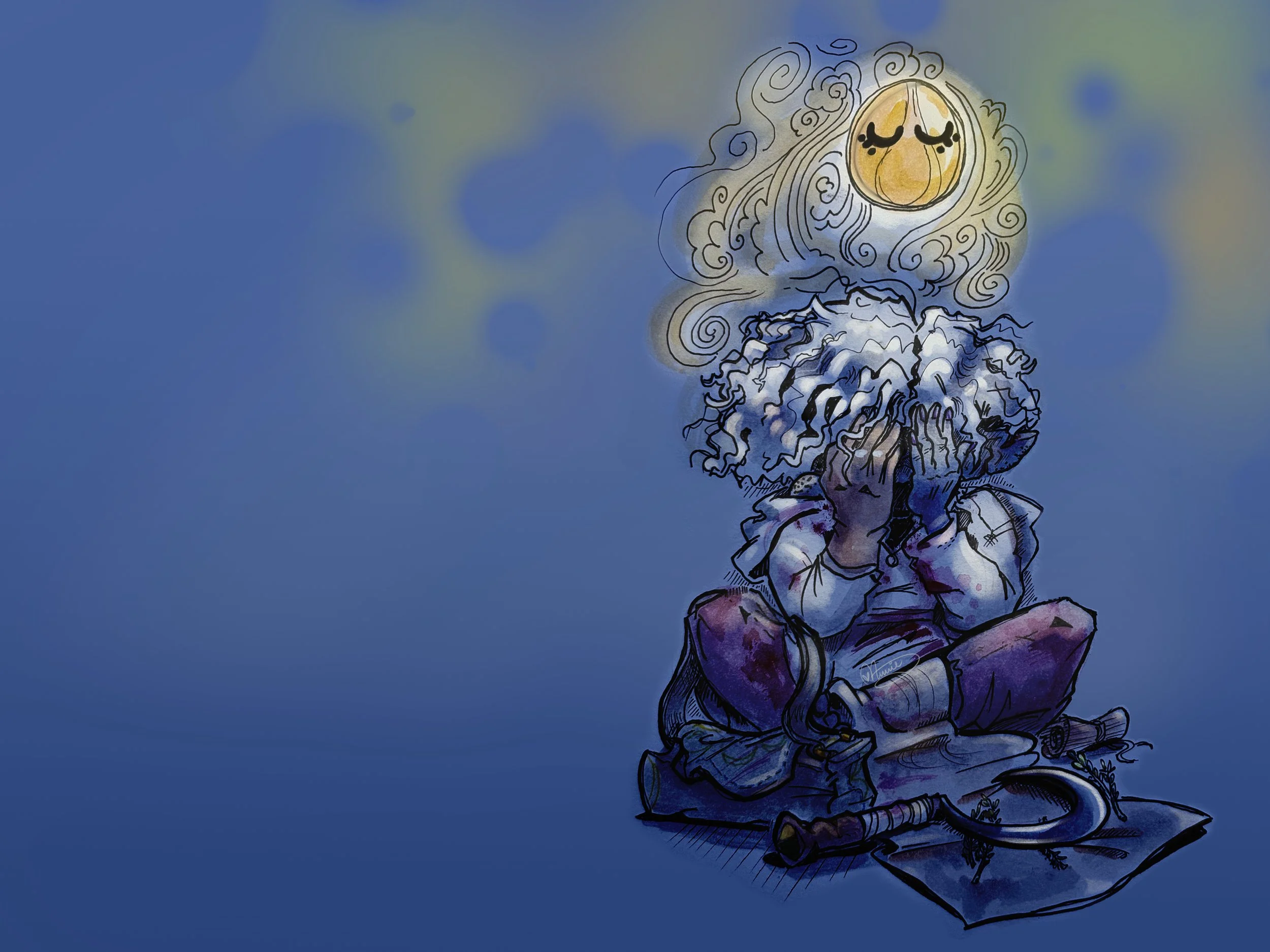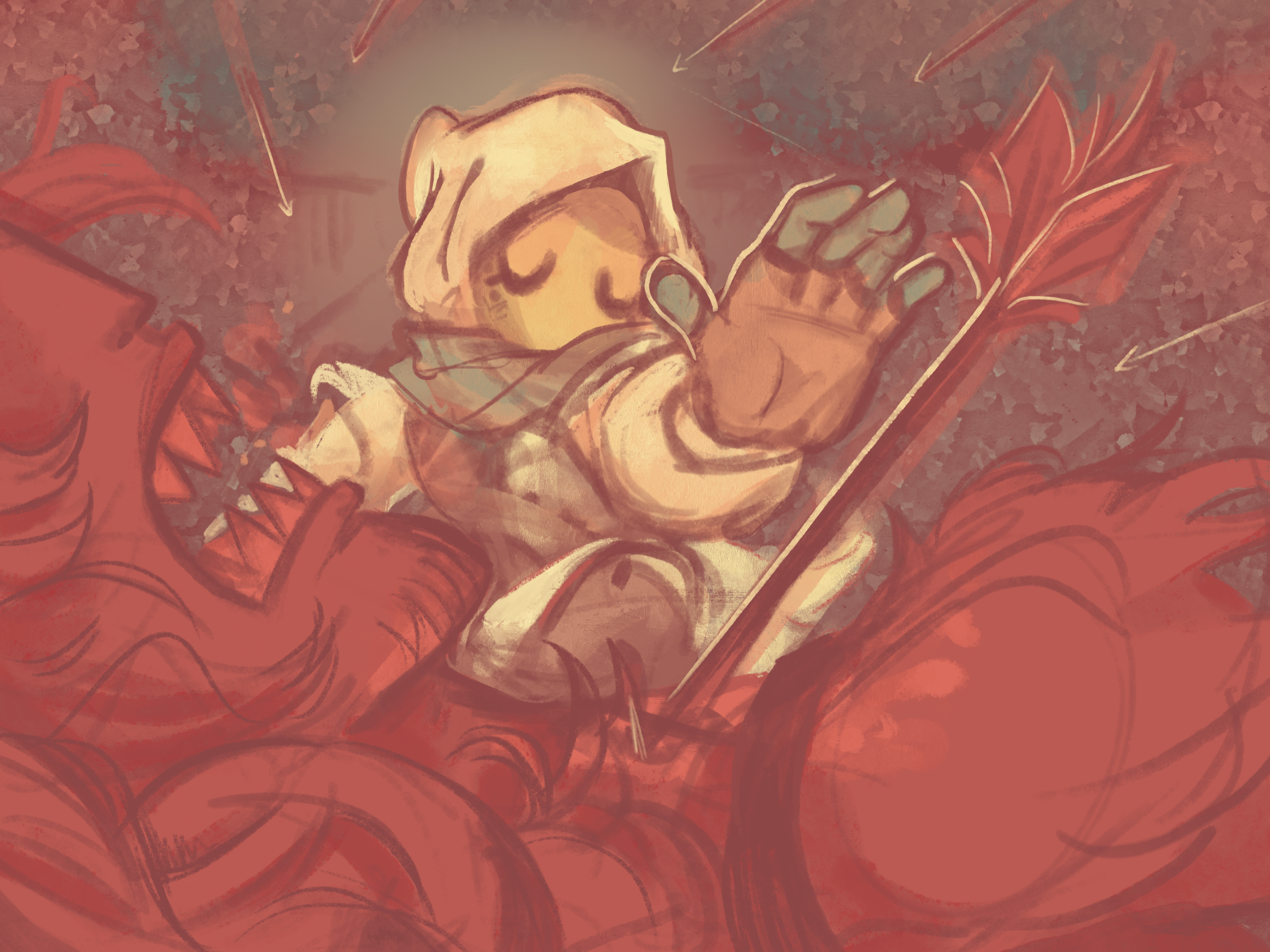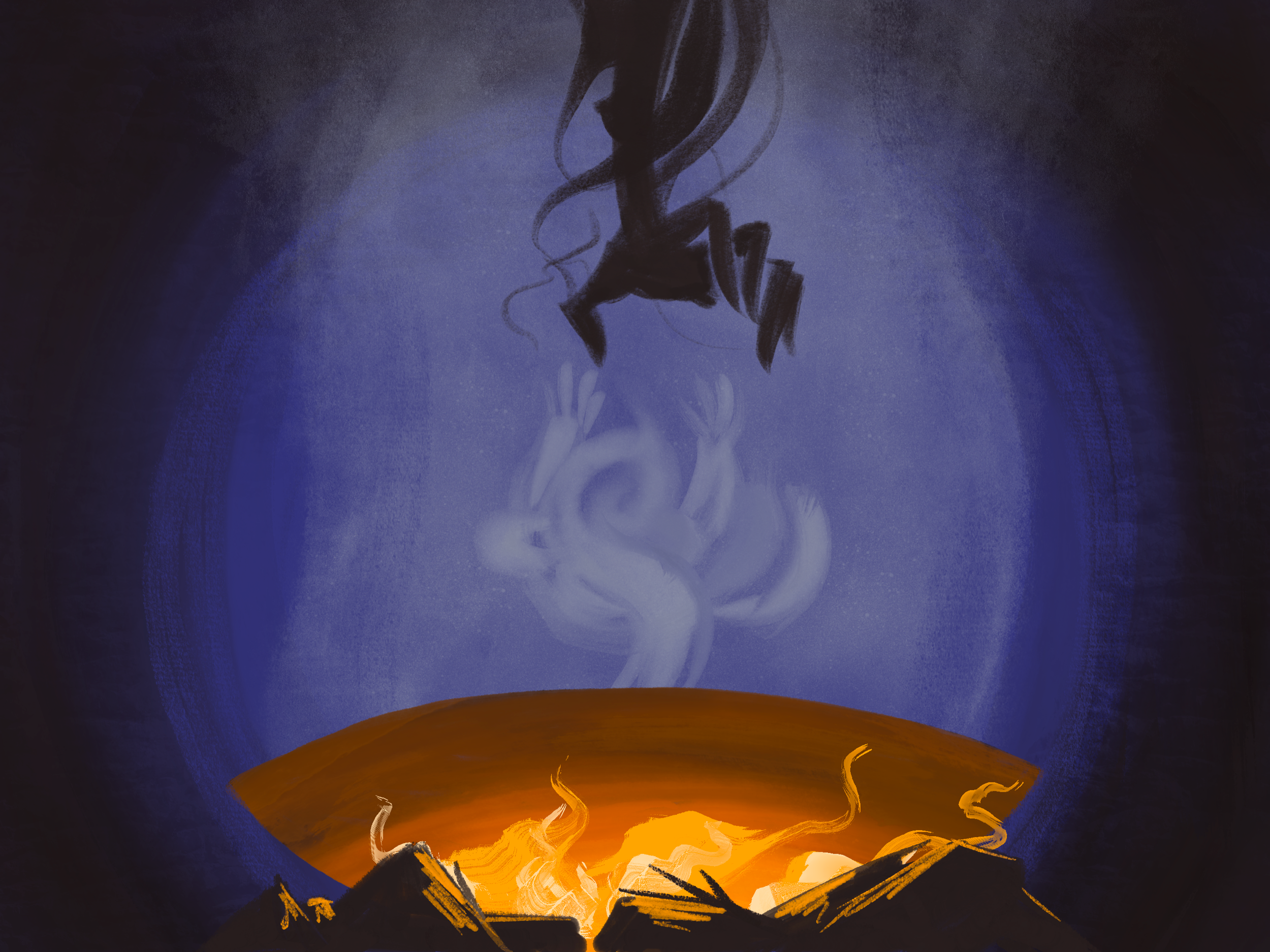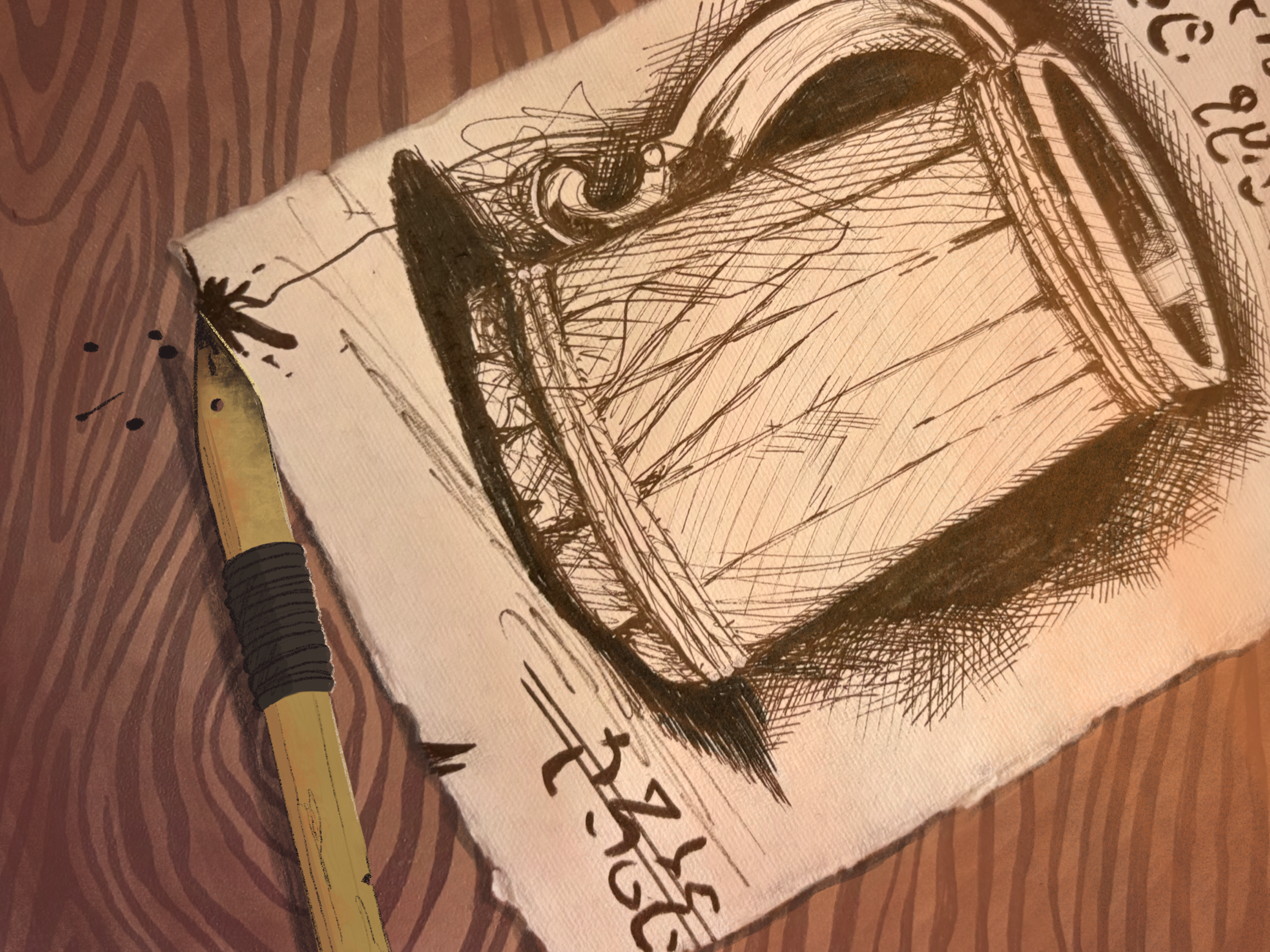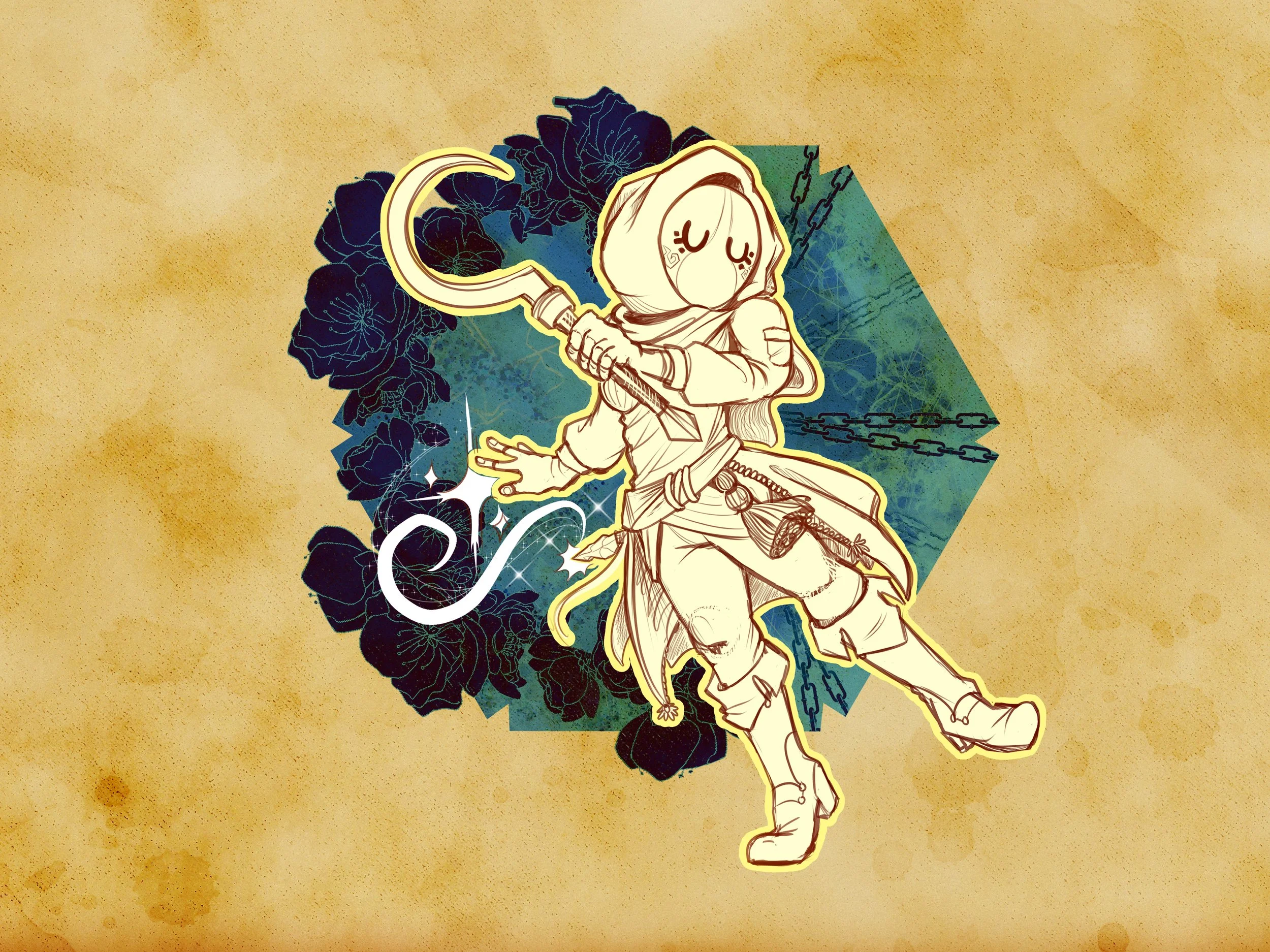Fanesca: Entry Eight
Disassociating…
Eighth Entry
I write this now with clearer hands, steadier breath. But weeks ago, that wasn’t the case. When I dropped to my knees in that cellar, my stomach turning on itself and my limbs like lead, I thought I was poisoned. I thought maybe that wicked voice sealed my demise. But no—it was the cost. The weight of drawing on the Weave too many times in too little time.
I had reached my casting limit and I hadn’t realized it.
The pain and nausea wasn’t some sort of supernatural attack. It was the tremor of an arcane well nearly run dry. I hadn’t developed the instinct to sense where the boundaries lie, no discipline to track the ebb and flow of magic through me. It’s strange. I can feel when others are hurt; sometimes before they even cry out. But I’ve never afforded that same listening to myself. I suppose it was easier to believe that my magic wasn’t mine to tend.
But I began to work on changing that.
The men would call it “training,” though mine is quiet, internal. I did not spar with blades. I sat alone in the night, hands folded, lips closed, and I would feel. I let my magic rise to the surface like breath before speech. I marked its size, shape, temperature. I undertook practicing spells without moving, without speaking—just intention. Strumming the magical tapestry of the Weave not with fingers and words, but sheer will and heart. It came slowly at first, a flicker of light that dimmed before it could form. Then one day, it stayed.
Subtle Casting.
The first time it worked, I cried. I don’t know why. Perhaps it was the intimacy of it—magic that belongs to no one else, not even the air. Just me.
And when I cast with speed now—Quickened Casting—I do it because I’ve learned to anticipate the rhythm of battle. The heartbeat between danger and decision. It’s not as elegant, but it is effective. It’s like I’ve taught my magic to sprint.
I finally felt more like a sorcerer.
And, in secret, I was proud.
I’m not healed, not yet. I still clutch my mask too tight when the wind picks up. But these small victories… they make the mask lighter.
And maybe next time, I’ll see the end of the battle on my feet.
———
It pains me to reflect on it, but after we escaped, I missed more of the following week than I intended to. Not just moments, but also their meaning. The world didn’t wait for me to catch my breath.
By the time I felt somewhat steady again, Ragar had already sold the staff she found—our staff, or so I thought. There was no discussion. No pause. Just coin in her hand and a growing distance in her eyes. Jack confronted her, and their voices echoed like clashing steel through the inn. I stayed silent, listening from the stairwell, fingers curled around one another, wondering if I would recognize her again after the next trip was over. She claimed she found it alone. But don’t we all fight the same monsters? Bleed over the same stones? It’s strange how betrayal doesn’t always feel like a knife. Sometimes it’s more like a silence that stays in the room even after the fight is done.
Finnegan was more of a balm than he realized. A conversation in passing, a casual note that the shrouded healers in town weren’t to be feared—his voice light, but his grin steady. I think he meant himself. And Raph’æl. It was subdued, but I caught it. I’m learning to read these people. And I’m learning to trust them, little by little. The old reflex—always assuming someone means to hurt me—doesn’t pull as tight as it used to.
We accepted a job to clear the roads of orcs, only to find ourselves witness to a birth. A mother in labor. Finnegan made the call to help instead of harm. He wasn’t… great at it. But the rest of us followed, more willing than I could have given them credit for at the time, especially Ragar. And I wonder if that’s what goodness is: not certainty, but choosing compassion in the absence of it. We didn’t run them off. We didn’t draw steel. We stayed. I suppose they respect us now. Odd.
After that, moments sort of melded into a stew for a bit. I didn’t realize how much my field notes were integral to my recollection until now. Nowadays, I find that sketching and painting the world around me is the most soothing, therapeutic way to chronicle my journey. But my memory doesn’t agree.
I remember running—stones underfoot, the heat of my own breath caught in the mask. I remember casting—healing, again and again, wherever someone shouted or staggered. And yet I can’t tell you how many spells I used. How many failed. I was there, but not. My body performed like a machine wound too tight. My mind—adrift. It’s happened before, always after something shakes me in just the wrong way.
This time in particular, it was her.
The drow thief.
She introduced herself with some sleight of hand, a feint, contempt, a terrifying trick of the shadows. I couldn’t even look at her properly after we successfully saw through her ruse. My stomach turned to stone. I told myself it was prudence. A healthy mistrust. But that was a lie.
The truth is uglier: I feared her.
Not her, exactly, but the shape she wore. The shade of her skin. The curl of her tongue on certain consonants. The arrogance. The gods-damned arrogance.
The Messengers would preach that Lolth’s daughters must be cut from the material plane and burned in ash.
That “we” would be the torchbearers… and I, the flame.
I was never old enough to question the sermons. Only to receive them, to absorb them, to repeat their songs until I bled.
I want to believe I am far from that girl now. That I am only “Fanesca:” a simple svirfneblin, a traveler, a lucky wielder of gentle magic. But when that drow woman emerged from the shadows with her false smiles and clever hands… the doctrine echoed. And I listened.
I hated myself for it.
Raph’æl and Jack distrusted her openly. Raph’æl even declared something so cold, I could see the woman twitch. And I—coward that I am—I felt soothed by his scorn. Safe. As if his and Jack’s prejudice could give mine permission to be.
Ragar, of course, was different. The bugbear watched the drow with a neutrality I envied and feared. When she deferred to the thief’s knowledge of the caves, I wanted to scream. Not because I thought Ragar was wrong—but because I was ashamed of how deeply I wished she were.
I didn’t trust either of them in that moment: not the thief, not Ragar.
But… how can I claim to have left the cult behind when a single drow makes me shrink into the shape they carved for me?
As I wrote before, the world does not pause for the soul to catch up. There were caves to clear, orcs to parley with, trinkets to find. My limbs moved. My voice spoke the words of healing, the syllables of frost. And when the fighting ended, I couldn’t recall what I’d done. Not really. Just feelings: tension, dullness, a fog I couldn’t walk out of.
I’m not proud of how I handled any of it.
I don’t know if I’ll ever be fully free of The Messengers’ shadows. But I refuse to cast a shadow of my own over anyone else, even if I don’t understand them yet.
And gods help me, I will try to understand.
Especially my comrades.
———
A day or so later… and with her gone… my fogged mind tried to find footing again. I reread things, I look back. Browse sketches. And now it’s undeniable.
Something is shifting in me.
Once upon a time, I used to replay my past every time I closed my eyes. Now, I replay conversations. Meals. Reflections on our tea cups. The comedic way Finnegan sighs when he’s amused. The way Jack always walks just a little ahead of the group, a wall of serene force. The way Super can somehow walk any conversation right back to pickling. And Raph’æl… I started to learn about him all over again. His transparent mask began to fall more often, especially around Jack. Maybe it’s because he’s come to trust him more. It actually… made me feel proud. He deserves to unleash some burden, however miniscule. He’s alleviated a lot of ours, after all.
A lot of mine.
I had been laughing more. Speaking more. Resting among them instead of near them. It’s subtle. Easy to overlook. But it’s there.
The coin purse grew heavier by the day. Gems clinked softly in the dark, whispering of futures I once longed for—solitude in the mountains, freedom along the southern coast, a quiet life far from the eyes of gods and men. A place to vanish. A place to call mine. But the longer I walk beside these strange, radiant souls, the more that vision fades at the edges.
I still dreamt of peace… but I was no longer certain if I would be capable of enjoying it alone.
It was a warm realization then.
It’s a frightening thought now.

